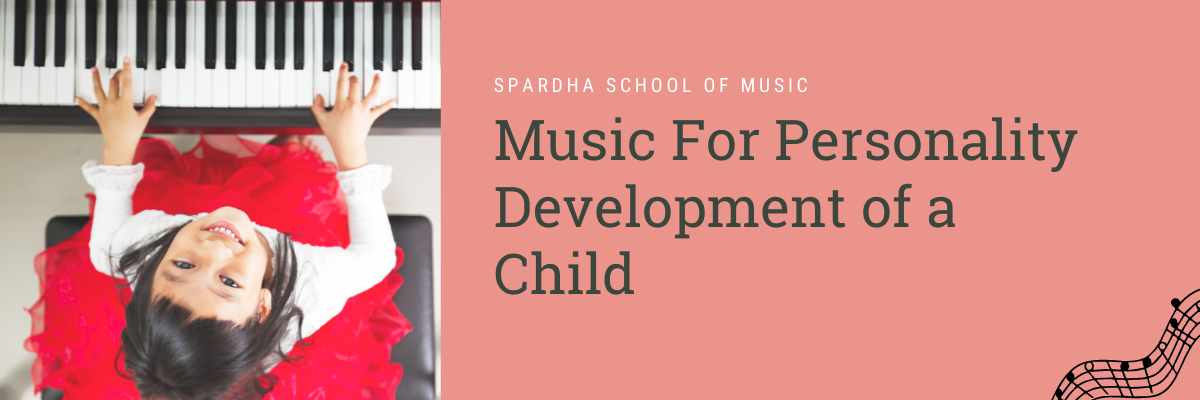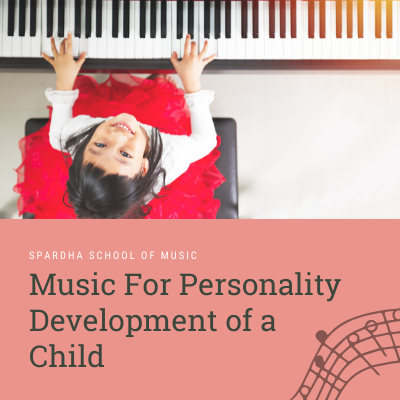
We know music can bring us joy and calm. Music is an essential part of human life, and it's often said that music is the language of the soul. But did you know that learning an instrument or music has actually been proven to help shape the way we learn and can also play a pivotal factor in personality development?
When children are first learning to play an instrument, it's not uncommon for them to get frustrated and even want to quit but perseverance is an important lesson for any child in any endeavor. There is evidence that music lessons can have a positive effect on their personality development during the growth years.
What are the benefits of music?
Most people know that music can be a fun and enjoyable way to pass the time. However, few realise the importance of learning music in early childhood days for the overall personality development. Studies have shown that music can help children develop important life skills, such as:
- Improved social skills: Music can help children learn how to interact with others and build relationships.
- Enhanced cognitive skills: Music can improve a child's memory, concentration, and critical thinking skills.
- Greater self-esteem and confidence: Children who participate in musical activities often have higher self-esteem and are more confident than those who don’t.
- Better motor skills: Music can help children develop coordination and motor skills.
In addition to the benefits mentioned above, music has also been proven to reduce stress, improve sleep quality and boost immunity. So whether you’re looking to improve your child’s social skills or simply want them to enjoy their growth years, consider enrolling them in music lessons.
What is Moderate Complexity Music?
We all know that music can be a powerful tool for emotions. But did you know that music can also play an important role in personality development? A recent study published in the journal Frontiers in Psychology found that moderate complexity music (such as pop songs) can help people develop certain important personality traits, such as self-esteem and empathy.
The study was conducted by researchers at the University of Southern California, who asked participants to listen to either simple or moderate complexity music for 15 minutes. They found that those who listened to moderate complexity music showed an increase in self-esteem and empathy, while those who listened to simple music did not.
Emotional music in particular seems to have the most pronounced effect on children with autism spectrum disorder (ASD), as well as other disorders.
So what exactly is moderate complexity music? It turns out that this type of music is characterized by having both a clear structure and some element of unpredictability. This combination helps to engage listeners and encourages them to think about the meaning of the song.
So if you want to help your child develop a strong sense of self-esteem and empathy, consider incorporating moderate complexity music into their lives. It may just be the key to unlocking their full potential.
How to teach a very young child to play an instrument?
It's never too early to start music lessons! Scientists now believe that music lessons can help shape personality development in children as young as three years old.
So how do you go about teaching your three-year-old to play an instrument?
The key is to make it fun and engaging. Here are a few tips:
- Start with a simple instrument such as a xylophone or recorder.
- Encourage your child to experiment with making different sounds.
- Makeup songs or games that involve making music.
- Find a children's music class that your child can attend.
With the ease provided by online music classes now, you can easily let your child learn music from the comfort of your home and at any convenient time. Your little patience and creativity can help your child develop a lifelong love for music which can later be developed as a successful career option as well.
What is the recommended music curriculum design for serving children with developmental delays or disabilities?
There is no one-size-fits-all answer to this question, as the recommended music curriculum for serving children with developmental delays or disabilities will vary depending on the individual child's needs and abilities. However, there are some general guidelines that can be followed when designing a music curriculum for this population of students.
First, it is important to understand the student's age and level of functioning when selecting appropriate musical activities. For example, younger children or those with more severe disabilities may benefit from simple songs or rhymes with limited musical accompaniment while older children or those with more mild disabilities may be able to participate in more complex musical activities such as playing instruments or singing in a choir.
In addition, it is important to choose musical activities that are developmentally appropriate and which can match the child's interests and abilities as then only the child will be able to develop interest in that particular musical activity. For example, if a child enjoys moving around, then active songs that involve movement might be a good choice. Or, if a child is interested in animals, then songs about animals could be included in the curriculum.
Finally, it is important to create a supportive and positive environment for all children participating in the music program, regardless of their abilities. This means ensuring that all children feel valued and included and equal. Same kind of opportunities should be given to all the children and they should be allowed to choose what's best for them. They should have the freedom to decide as per their likes and dislikes.
We can conclude by saying that music lessons from an early stage of life of a child can be a great developmental catalyst which helps in enhancing the overall personality of children. Even scientists have proven scientifically that music lessons are important for personality development. This is due to the fact that music helps children to develop skills such as self-regulation, empathy and social skills. These skills are essential for children to be successful in life.
